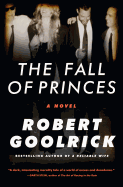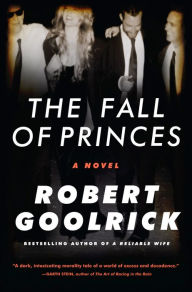 Robert Goolrick's novel The Fall of Princes has its roots more in his family memoir, The End of the World as We Know It, about his wealthy parents' life of ostentation, addiction and abuse, than in his first novel, A Reliable Wife, set in the early 20th century. The Fall of Princes is the story of Rooney, a high-flying Wall Street trader caught in the swirl of 1980s New York excess, with what he calls its "megawatts of greed and glory and rapaciousness... like a giant testosterone flambé." If Jay McInerney's 1984 novel Bright Lights, Big City and Oliver Stone's 1987 movie Wall Street define the '80s zeitgeist, Goolrick's Rooney gives his account from the bottom of the well, after the money, drugs, high-end hookers, Brioni suits, Bryn Mawr alumni wives and chauffeured Lincoln Town Cars have been replaced by his rat-infested West 35th Street "Hovel Hall" apartment and a retail clerk's job in short sleeves and khakis at Barnes & Noble. Looking back on his brief run as what Tom Wolfe tagged a "Master of the Universe," Rooney concludes, "When you lose everything, you don't die. You just continue in ordinary pants with nothing in your pockets."
Robert Goolrick's novel The Fall of Princes has its roots more in his family memoir, The End of the World as We Know It, about his wealthy parents' life of ostentation, addiction and abuse, than in his first novel, A Reliable Wife, set in the early 20th century. The Fall of Princes is the story of Rooney, a high-flying Wall Street trader caught in the swirl of 1980s New York excess, with what he calls its "megawatts of greed and glory and rapaciousness... like a giant testosterone flambé." If Jay McInerney's 1984 novel Bright Lights, Big City and Oliver Stone's 1987 movie Wall Street define the '80s zeitgeist, Goolrick's Rooney gives his account from the bottom of the well, after the money, drugs, high-end hookers, Brioni suits, Bryn Mawr alumni wives and chauffeured Lincoln Town Cars have been replaced by his rat-infested West 35th Street "Hovel Hall" apartment and a retail clerk's job in short sleeves and khakis at Barnes & Noble. Looking back on his brief run as what Tom Wolfe tagged a "Master of the Universe," Rooney concludes, "When you lose everything, you don't die. You just continue in ordinary pants with nothing in your pockets."
Goolrick spent 20 years in the fast and loose New York advertising world before being summarily fired at age 53. He turned to longer-form writing, but his adman's flair for a clever turn of phrase and sharp, quick-shifting graphic scenes are at the heart of Princes. After bumming in Europe in a failed search for his inner artist, Rooney gets his first taste of the money world in his successful interview with The Man at The Firm for a trading job on The Street. After that, he is at the center of "the great tailgate party" where "the money was fantastic and the roll, the flow of it, was like mainlining every day." One of his trading buddies springs for a decadent last fling in Las Vegas before he has to "move to Greenwich and have children who would have two middle names in that English way and he just wouldn't be available on the let's-go-to-William's-on-Carmine-Street-and-pick-up-an-eight-ball circuit anymore."
Goolrick's New York City in the '80s reflects a twinge of nostalgia, but the ravages of all that sex, drugs and money took their toll--AIDS, divorce and, in Rooney's case, "the slammer... four times, twice in rehab for various addictions, and twice to the loony bin." It finally takes the plaintive singing of an inexperienced young call girl, the unquestioning love of a transvestite streetwalker, a full reading of Proust's Á La Recherche du Temps Perdu and a bookstore job to cushion his dizzying descent. Given the height from which he fell, only a big cushion would do. --Bruce Jacobs, founding partner, Watermark Books & Cafe, Wichita, Kan.
Shelf Talker: Goolrick's depiction of a Wall Street trader's rise to riches and fall to bookselling blends exuberant reminiscences of 1980s excess with a sober desperation for redemption.

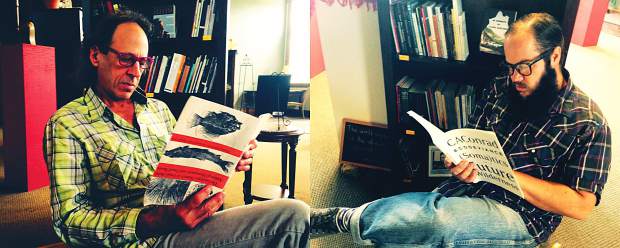











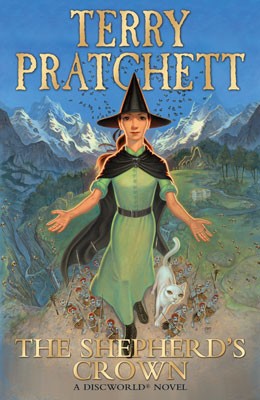

 Amazon plans to
Amazon plans to 
 Nancy Princenthal discussed her new biography Agnes Martin: Her Life and Art (Thames & Hudson) at the FLAG Art Foundation in New York City last week. Pictured in front of the painting Agnes Martin, Peace and Happiness (2001, acrylic and pencil on canvas, 60 x 60 inches) in the Foundation's "Space Between" exhibition are (l.-r.) FLAG Art Foundation founder Glenn Fuhrman, Princenthal and exhibition co-curator Stephanie Roach.
Nancy Princenthal discussed her new biography Agnes Martin: Her Life and Art (Thames & Hudson) at the FLAG Art Foundation in New York City last week. Pictured in front of the painting Agnes Martin, Peace and Happiness (2001, acrylic and pencil on canvas, 60 x 60 inches) in the Foundation's "Space Between" exhibition are (l.-r.) FLAG Art Foundation founder Glenn Fuhrman, Princenthal and exhibition co-curator Stephanie Roach.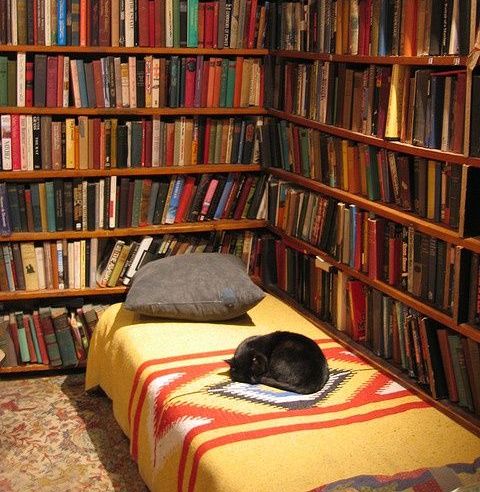 "Have you ever walked into a bookstore and thought, 'I never want to leave?' " A B&N Reads blog post wondered "
"Have you ever walked into a bookstore and thought, 'I never want to leave?' " A B&N Reads blog post wondered "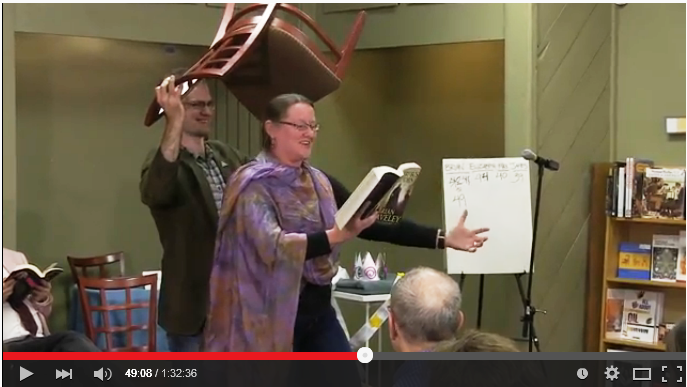
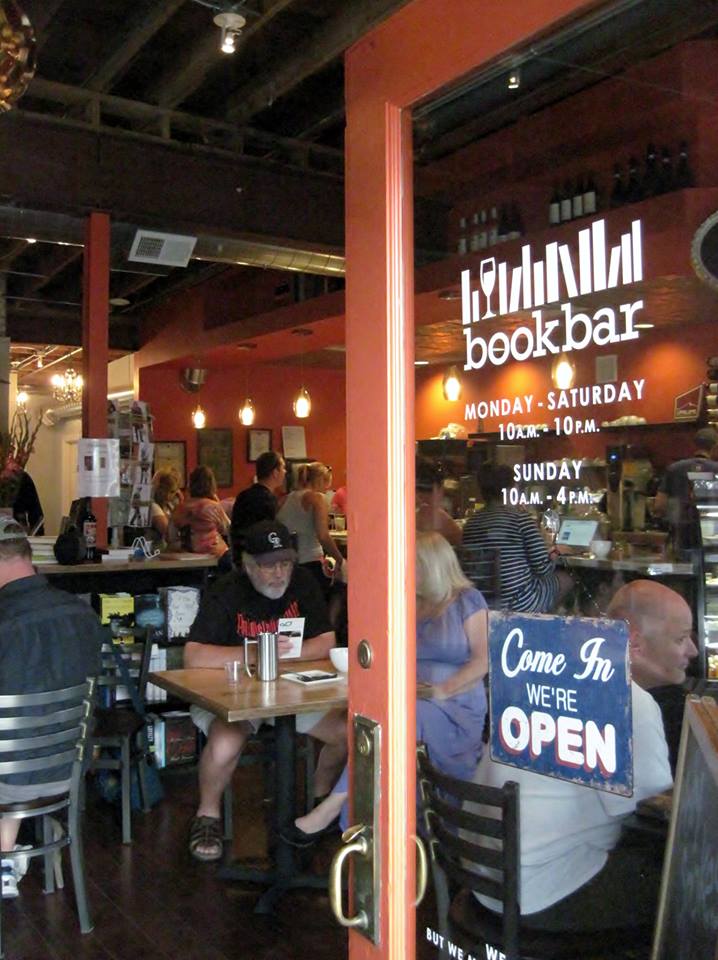 Noting that "what I really wanted wasn't a book-themed bar but a bookstore that also served booze--a place where I could simultaneously indulge my great loves for books and beer," Bustle's Alex Heimbach highlighted "
Noting that "what I really wanted wasn't a book-themed bar but a bookstore that also served booze--a place where I could simultaneously indulge my great loves for books and beer," Bustle's Alex Heimbach highlighted "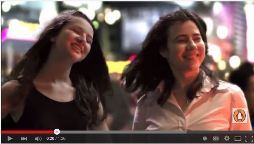 Skyscraping
Skyscraping Robert Goolrick's novel The Fall of Princes has its roots more in his family memoir, The End of the World as We Know It, about his wealthy parents' life of ostentation, addiction and abuse, than in his first novel, A Reliable Wife, set in the early 20th century. The Fall of Princes is the story of Rooney, a high-flying Wall Street trader caught in the swirl of 1980s New York excess, with what he calls its "megawatts of greed and glory and rapaciousness... like a giant testosterone flambé." If Jay McInerney's 1984 novel Bright Lights, Big City and Oliver Stone's 1987 movie Wall Street define the '80s zeitgeist, Goolrick's Rooney gives his account from the bottom of the well, after the money, drugs, high-end hookers, Brioni suits, Bryn Mawr alumni wives and chauffeured Lincoln Town Cars have been replaced by his rat-infested West 35th Street "Hovel Hall" apartment and a retail clerk's job in short sleeves and khakis at Barnes & Noble. Looking back on his brief run as what Tom Wolfe tagged a "Master of the Universe," Rooney concludes, "When you lose everything, you don't die. You just continue in ordinary pants with nothing in your pockets."
Robert Goolrick's novel The Fall of Princes has its roots more in his family memoir, The End of the World as We Know It, about his wealthy parents' life of ostentation, addiction and abuse, than in his first novel, A Reliable Wife, set in the early 20th century. The Fall of Princes is the story of Rooney, a high-flying Wall Street trader caught in the swirl of 1980s New York excess, with what he calls its "megawatts of greed and glory and rapaciousness... like a giant testosterone flambé." If Jay McInerney's 1984 novel Bright Lights, Big City and Oliver Stone's 1987 movie Wall Street define the '80s zeitgeist, Goolrick's Rooney gives his account from the bottom of the well, after the money, drugs, high-end hookers, Brioni suits, Bryn Mawr alumni wives and chauffeured Lincoln Town Cars have been replaced by his rat-infested West 35th Street "Hovel Hall" apartment and a retail clerk's job in short sleeves and khakis at Barnes & Noble. Looking back on his brief run as what Tom Wolfe tagged a "Master of the Universe," Rooney concludes, "When you lose everything, you don't die. You just continue in ordinary pants with nothing in your pockets."